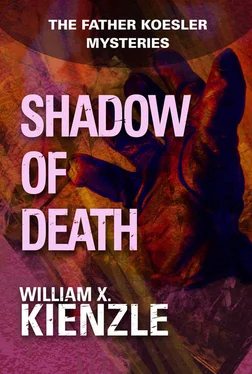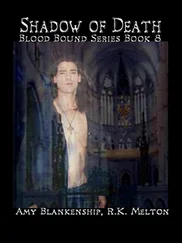“It is not,” she said. “But I’ll not be troubling you two young people any further. This is fine, just fine.”
“No, no,” Lennon protested, “we’re in no hurry. Besides, we want to drive out on the peninsula and get a look at the shore and the bay.”
“Well, if that’s the case,” said Mrs. Conlon, “I’ll just stay with you until you get to Barna, if it’s all the same.”
“Sure,” said Cox, “no trouble at all.”
As they left Galway, to the left they could see the bay. A few minutes later, as they neared Barna, far out, they could make out the Aran Islands.
“This will be fine,” said Mrs. Conlon, “just fine.”
“There’s a pub up just a few more feet,” said Cox. “How about joining us for a little drink?”
“Well, if it’s no trouble,” said Mrs. Conlon, “I don’t mind if I do.”
Cox pulled the car off the road into the small parking lot that fronted the pub.
There were a few elderly men and one middle-aged woman inside. After waiting several seconds for their eyes to become accustomed to the dim interior, Cox and Lennon and their passenger took a table near the middle of the rectangular room.
Lennon and Cox each ordered a Guinness. Mrs. Conlon’s order was, “a half one,” which, to Cox and Lennon’s interest, turned out to be a whiskey, neat. Lennon and Cox began sipping their stout while Mrs. Conlon merely contemplated the amber liquid that rested quietly in her glass without benefit of ice or water.
“And where will you two young people be going from here?”
“We’re going to try to make the Connemara circle,” said Lennon.
“Ah, that would be ambitious,” Mrs. Conlon observed. “But you’ll love the Twelve Bens, as well as Killary Harbor. And then of course there’s Croagh Patrick. It’s a grand sight, all in all.”
Cox stared out a side window. Nearly sotto voce, he sang, “And watch the suds flow down by Galway Bay . . .”
“I think you’ll find that’s ‘. . . and watch the sun go down on Galway Bay,’ Mr. Cox,” said Mrs. Conlon.
“Not according to the Clancy Brothers,” said Cox.
“But come now,” he continued raising his glass, “all those things the English—my people—did to the Irish—your people— took place long ago. The Republic of Ireland is free and, I’m told, forgiving. So, how about a farewell, a parting toast? How about it?”
Lennon and Mrs. Conlon obligingly raised their glasses.
“The Queen!” Cox tipped his glass to his lips.
“Up her kilt!” Mrs. Conlon added, and downed her whiskey in a swallow.
As Mrs. Conlon was leaving the pub, she paused to look back. Joe Cox was still choking and Pat Lennon was still pounding him on the back.
3.
“I had intended to tell you before the play began, Father, but, as it turned out, there simply was no time.”
“What is it, Inspector?”
Koznicki and Koesler had met at the Dublin Gate Theatre just as the performance was about to begin. They had had time only to find their places and be seated as the curtain rose on Act One.
Koesler had had in tow one Daren Ahern, the helpful gentleman who earlier in the day had led them to Trinity College and the theater box office. As a reward, over Ahern’s protests, Koesler had bought him a ticket too.
It was now intermission and the three men were standing in a tightly packed crowd on the sidewalk just outside the theater.
“Mr. Ahern,” said Koznicki, “would you mind very much getting the three of us some orange juice at the stand in the lobby?”
“I would not mind at all,” said Ahern, almost snapping to attention. “It would be a privilege and a pleasure.”
As Ahern plowed back through the crowd, Koznicki said, “What I have to say is for your ears alone, Father. Just before leaving for the theater tonight, I phoned Hammersmith Hospital in London.”
“You did?” Koesler asked anxiously. “How is Ramon?”
“In a word, better. The doctors, of course, continue to marvel . . . and to be most guarded in their prognosis. But the Reverend Toussaint has been removed from the intensive care unit.”
“He has? That’s wonderful!”
“I thought so also. But the doctors continue to caution that the possibility of complications from any number of sources is very great. The Reverend remains on the critical list.”
So far so good, thought Koesler. But what was there in what Koznicki had said that couldn’t have been said in front of anyone, including a stranger such as Ahern?
Koznicki was about to address the point. “This is what I wanted to tell you alone: I asked the doctors to release the information that their prognosis of the Reverend Toussaint’s condition is such that they do not expect him to regain consciousness—ever—even if he should happen to recover physically.”
Koesler’s mouth dropped open. “But you just said the doctors believe he is improved and they’ve removed him from intensive care!”
“That is correct. But the people who beat the Reverend wanted not only his suffering but his death. The fact that he is not dead must be a source of frustration—and concern—to them.
“It is the same with Cardinal Boyle: There are those who want him dead. That he has survived two assaults is undoubtedly galling to his would-be assassins. We must assume they will continue to try to achieve their ultimate aim . . . and that is why we continue to guard him.”
“And you feel the same may happen to Ramon.”
“He is still alive and his enemies want him dead, certainly. But, added to that, there is always the possibility that if the Reverend should regain consciousness he might be able to identify his assailants.
“And consider this, Father: Whoever attacked the Reverend seemed determined to exact revenge not only by taking his life but also by brutalizing him in the process. A publicized prognosis of a permanent coma—pray God it does not prove true—should more than satisfy his enemies. If in some way they could have transformed him into a vegetable, they surely would have. With this information released, they should be content that he is condemned to this living death . . . sufficiently content not to again attempt his actual extinction.”
“How shrewd. Inspector. An excellent plan!”
“The Polish mind never rests.” Koznicki could not resist a grin.
Koesler grinned back, but stopped suddenly. “Oh, I almost forgot: What about Emerenciana?”
“His wife is at the Reverend’s bedside. She arrived today and will remain with him.”
“I’m glad. I’ll phone her tomorrow.”
“Now then, isn’t it a grand play, though?” Ahem returned, on cue as it were, bearing three paper cups of orange juice. He had all he could do to avoid spilling them as he elbowed his way through the crowd.
“Yes,” Koesler agreed, “I’m so glad they’re having this revival of Brian Friel’s Translations. I read some reviews of it when it premiered here in 1980 but I never thought I’d get a chance to see it. It is so inventively done, don’t you think?”
“Oh, yes, definitely,” said Koznicki. “I admire the device of having everyone in the cast speaking English while the interpreter pretends he is translating for the Irish, who are supposed to be speaking in their native tongue, unable to understand English.” He shook his head. “It’s hard to comprehend the English taking over Irish life to such a degree that they would insist on the Irish abandoning their native tongue, and then go on to change the names of places in Ireland so they would sound more natural to the English ear!”
“Arra, but that was how it was just the same.” Ahem sucked in his breath sharply.
Koesler was jolted. He recalled from his childhood, members of his mother’s family, the Irish side of his ancestry, making the same sound. He hadn’t heard it from the time the last of the elderly Boyle clan had passed away until now.
Читать дальше












